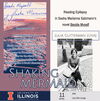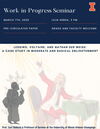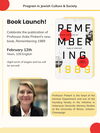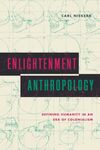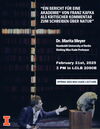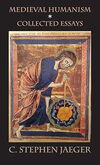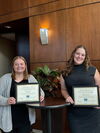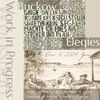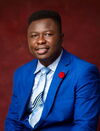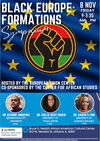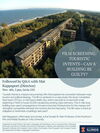2025-03-11
- This workshop, organized by Germanic Languages and Literatures, will bring Assistant Professor Julia Gutterman to our campus on April 11, 2025 for a medical humanities and disability studies talk on depictions of epilepsy in literature. Julia Gutterman is Assistant Professor of German at the University of Virginia. Her research brings questions of gender, disability and multilingualism to a...
- 2025-03-07 - Lessing and Voltaire first met at the Court of Frederick II in 1750, and shortly thereafter Lessing received permission to translate Voltaire’s essays and to have his daily dinner at Voltaire’s table. Eventually, however, the relationship between the two soured, and they would not meet again after Voltaire left Prussia in 1753. Carl Niekerk’s paper investigates the dynamics between the two...
- 2025-02-27 - This account of the “laboratory of radical democracy” in the months before East Germany’s absorption in the West challenges memories of Germany’s reunification. For many, 1989 is an iconic date, one we associate with the fall of the Berlin Wall and the end of the Cold War. The year prompts some to rue the defeat of socialism in the East, while others celebrate a victory for...
- 2025-02-25 - In this book, Carl Niekerk probes the origins of modern anthropology in the European Enlightenment, foregrounding how the knowledge transfer between an international array of natural historians and public intellectuals—including Georges-Louis Leclerc, Comte de Buffon; Voltaire; Denis Diderot; Immanuel Kant; and Johann Gottfried Herder—shaped the emerging discipline and its central debates....
- 2025-02-07 - The World Language Teacher Education (WLTE) Future Teacher Award seeks to both recognize teacher candidate’s professional and academic excellence and provide financial support to assist them with the costs related to Student Teaching during their final semester.
- 2025-02-07 - Join us for the 2025 Max Kade Lecture, presented by Visiting professor, Dr. Marita Meyer, from Humboldt University of Berlin. For a long time, the animals in Franz Kafka's stories, be it the beetle, the mouse or the monkey, were only read symbolically. With the establishment of Animal Studies, especially Cultural and Literary Animal Studies, attention to the biological side of animal figures...
- 2024-12-16 - The worldly culture of northern Europe in the two centuries between the end of the Carolingian Empire and the “renaissance of the twelfth century” is, in the words of Claudio Leonardi, an “age without a name.” The difficulty of naming the period might be a lack of coherence among its parts and, at the same time, a lack of conceptual apparatus for formulating a synthesis. C. Stephen Jaeger argues...
- 2024-12-10 - Marie received the ICTFL Award for College World Language Teaching Majors from the Illinois Council on the Teaching of Foreign Languages. Macy received the ICTFL Award for New Teachers of a World Language from the Illinois Council on the Teaching of Foreign Languages. Congratulations to you both!
- 2024-11-13 - Please join us for the inaugural meeting of the Work-in-Progress Workshop on Dec 6, 2024 at 4pm. This forum is designed to gather members and friends of the Germanic department together to support innovative research and provide a collaborative space to work through new ideas. Grad students and faculty are welcome and encouraged to participate. There is no expected length for...
- 2024-11-08 - We’re pleased to announce the Final Examination of Felix Ayanbode as he presents the oral defense of his thesis. The Representation of Biracial Occupation Children Please feel free to join us! Monday, November 18, 2024 10:00 am – 12:00 pm 2090B Literatures, Cultures & Linguistics Building
- 2024-11-08 - In this workshop, we discussed questions that future MA exam takers may have about the MA exams, went over what the MA exam entails, and how to prepare for it. We heard from past exam takers about their experiences. Anke Pinkert, Carl Niekerk, and Charles Webster also provided insight from the view of test-givers. Sponsor: Department of Germanic Languages and Literatures
- 2024-11-05 - Please join us Friday, November 8 at the Bruce D. Nesbitt African American Cultural Center for a symposium, "Black Europe: Formations," organized by the European Union Center. Charlie Webster, GLL, will participate in the 2:00 pm Roundtable Discussion, offering his thoughts about the intersections of culture, race,...
- 2024-10-14 - Touristic Intents is a feature documentary film that explores the connection between mass tourism and political ideology. The film is centered on a case study: the never-completed Nazi resort of Prora, on Germany's Baltic Sea, which was built on a mammoth scale beginning in 1936 to house 20,000 vacationing working-class Germans. This 4-mile-long building was used in...
- 2024-10-02 - This account of the “laboratory of radical democracy” in the months before East Germany’s absorption in the West challenges memories of Germany’s reunification. For many, 1989 is an iconic date, one we associate with the fall of the Berlin Wall and the end of the Cold War. The year prompts some to rue the defeat of socialism in the East, while others celebrate a victory for...
- 2024-09-20 - This workshop will explore theoretical and practical aspects of using generative artificial intelligence tools in language teaching. Applications and limitations of particular tools will be discussed. Participants are encouraged to bring their own devices to work with the AI tools. Come join us on October 11, 2024 from 4-5:30pm in LCLB 2090B to learn more.
